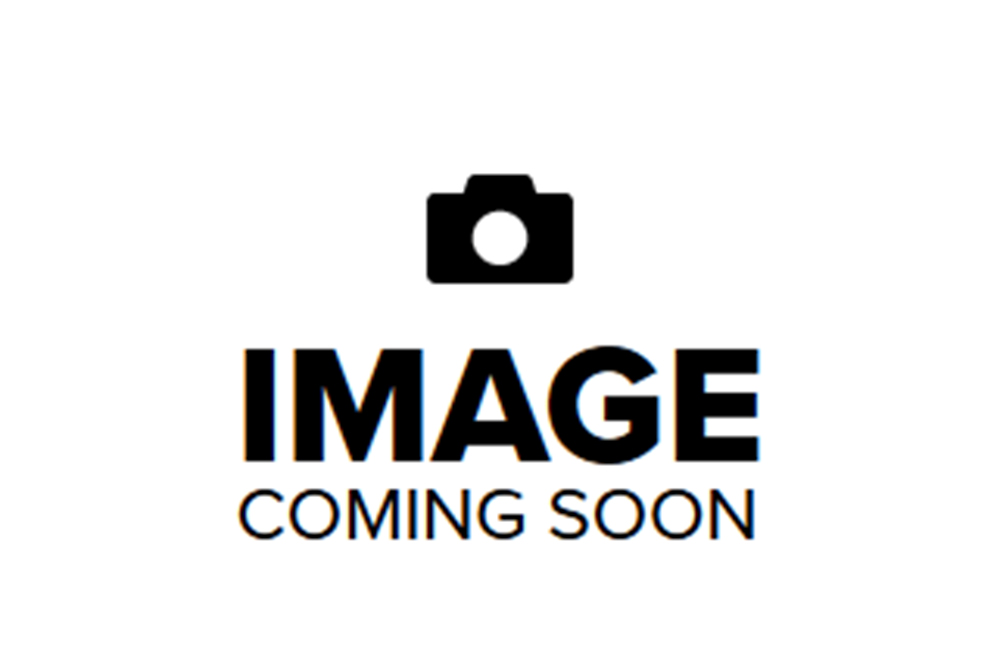
Alaska LEND Without Walls
About Alaska LEND
Alaska LEND Without Walls (Leadership Education in Neurodevelopmental and related Disabilities) provides leadership training for graduate students, practicing professionals, individuals with disabilities, and family members to improve the health of infants, children, and adolescents who have (or are at risk for developing) autism and other developmental disabilities.
LEND Program Components
- Your goals
- Interdisciplinary seminars
- Family experiences
- Clinical/Field experiences
- Leadership project
- LEND Goals
Goals
- Develop interdisciplinary leadership skills to promote systems change and advocacy on behalf of infants, children and adolescents who have, or are at risk for developing, autism and other developmental disabilities.
- Advance the knowledge and skills of all child health professionals to improve health care delivery systems for children with developmental disabilities.
- Provide high-quality interdisciplinary education that emphasizes the integration of services from state and local agencies and organizations.
- Provide innovative practices to enhance cultural competency, family-centered care, and interdisciplinary partnerships.
-
LEND Program National Network
LEND Program National Network
- There are 60 LEND programs located in every US state, District of Columbia, the US Virgin Islands, Puerto Rico, Guam, American Samoa, and the Northern Mariana Islands reached through program partnerships.
- These programs work together to address national issues of importance to children with special health care needs and their families, exchange best practices, and develop shared products.
- LEND programs come together regionally to address issues specific to their location.
- Visit the Association of University Centers on Disabilities website to learn more.
LEND is a federal training program funded by the Maternal and Child Health Bureau (MCHB) to ensure that children with special health care needs and neurodevelopmental disabilities have access to health and education professionals with expertise in family-centered care, interprofessional teams, and leadership systems-level change.
UAA is an AA/EO employer and educational institution and prohibits illegal discrimination against any individual: UAA Title IX Compliance.
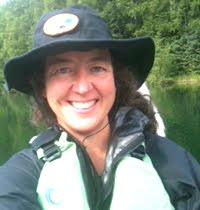
“Summer camp for people with disabilities has been my dream as long as I can remember, but LEND helped to show me that I can do more than dream and talk about it, I can actually DO it.”
-Betsey Jacobs, SLP, LEND Fellows
LEND Trainings
Alaska LEND without Walls requires a minimum commitment from long term Fellows of 300 hours, which includes over 100 hours of clinical experience in an academic year. Long term Fellows receive a Workforce Credential and a stipend for completion of the LEND program. UAA Professional and Continuing Education (PACE) credits are available, 3 per semester.
The LEND program is offered using distance technology to Fellows across the state, including Video Conferencing and some Web conferencing. LEND Fellows also travel to Anchorage three times during the program year. Approved travel for required LEND activities will be paid for by the grant.
- Expectations
- Sept–May Academic Year commitment
- Participate in weekly seminars, Fridays 1-4 pm (offered via video/web conferencing at community sites outside of Anchorage)
- Attend three Leadership Workshops (2-days each, face-to-face in Anchorage; at beginning, middle, and end of program)
- Complete all program requirements
- Monthly meeting with your faculty mentor
- Spend an average of 5–10 hours per week on LEND activities such as seminar, clinical/field experiences, time with host family, and leadership project
- Long Term Fellows
You must meet at least one of the four eligibility criteria.
a) Baccalaureate degree and enrolled in a graduate program in one of the following disciplines: nursing, public health, social work, psychology, special education, education, speech language pathology, audiology, occupational therapy, or medicine.
-OR-
b) Graduate degree in one of the following disciplines: nursing, public health, social work, psychology, special education, education, speech language pathology, audiology, occupational therapy, or medicine.
-OR-
c) Baccalaureate degree and at least 5 years of experience with increasing professional responsibilities in the field of developmental and related disabilities.
-OR-
d) You are a parent/family member of a child OR a self-advocate with a developmental disability.
-AND-Have long-term professional leadership goals focused in developmental disabilities and/or Autism Spectrum Disorder in Alaska. Long Term Fellows develop an individualized leadership training plan with their faculty mentor which meets their personal long term goals. All program components tie directly to this plan and many options are available within each component. Twelve Long Term Fellows are selected to participate each year.
- Advanced Medium Term Fellows
As a parent of a child with an intellectual or developmental disability, or as someone who experiences an intellectual or developmental disability, there is also an Advanced Medium Term Fellowship opportunity. This Fellowship completes 150 hours instead of 300 hours over two semesters. Three Advanced Medium Term Fellows are selected to participate each year.
Advanced Medium Term Fellows focus on building leadership and advocacy skills. Advanced Medium Term Fellows attend all seminars and training, and complete field hours to meet individual goals. Advanced Medium Term Fellows do not complete a leadership project, clinical observation hours, and the host family experience that the Long Term Fellows complete.
- MENTOR
Mentoring is a foundational component of the LEND experience.
- Faculty Mentoring
Faculty Mentoring
As part of the LEND experience, Fellows develop a relationship with a UAA faculty member, usually in their discipline. LEND Faculty Mentors work with Fellows as they participate and reflect through their experiences in LEND. Mentors help craft the Fellow's goals and Leadership Project.
Fellows meet with mentors (in person, by phone or video chat) to discuss areas of strength and areas for growth and discuss goals for LEND and brainstorm about the Leadership Project. Fellows meet to discuss progress, reflect on learning from LEND experiences, and adjust goals as needed. Mentors are available to problem-solve with Fellows when support is needed.
Benefits of being in a mentoring relationship:
- Accelerate personal and professional leadership skills development
- Access to expertise and advice
- Problem solving partner
- Host Family Mentoring
Host Family Mentoring Experience
Understanding and utilizing family-centered practices is a key part of the LEND program. In addition to discussion and didactic learning in seminar, Fellows build a relationship with at least one family to understand the challenges families of children and youth with ASD/DD face in such areas as shopping, transportation, housing, education, and recreation. Family faculty matches Fellows to a mentoring host family. Fellows spend 25–30 hours during the year with their host family.
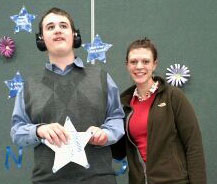
Objectives of the Host Family Mentoring Experience:
- To understand the impact of raising a child with a disability may have on the entire family.
- To increase appreciation of the capabilities and contributions of children with disabilities.
- To learn about the emotions and stages of adjustment experienced by parents, when a child is diagnosed with a disability.
- To appreciate the value of good collaboration between parents and professionals.
- To learn about community resources available for children with disabilities and their families.
- To consider obstacles, challenges, opportunities and outcomes of school and community inclusion, for children with disabilities.
- To understand the importance of family-centered practices.
If you are a parent of a child who experiences a developmental or related disability and are interested in being a mentoring family for a LEND Fellow, please contact the Training Coordinator.
- Faculty Mentoring
Complete the Cohort Application for 2023/2024
- Eligibility Requirements
You must meet at least one of the four eligibility criteria.
a) Baccalaureate degree and enrolled in a graduate program in one of the following disciplines: nursing, public health, social work, psychology, special education, education, speech language pathology, audiology, occupational therapy, or medicine.
-OR-
b) Graduate degree in one of the following disciplines: nursing, public health, social work, psychology, special education, education, speech language pathology, audiology, occupational therapy, or medicine.
-OR-
c) Baccalaureate degree and at least 5 years of experience with increasing professional responsibilities in the field of developmental and related disabilities.
-OR-
d) You are a parent/family member of a child OR a self-advocate with a developmental disability.
-AND-Have long-term professional leadership goals focused in developmental disabilities and/or Autism Spectrum Disorder in Alaska. Long Term Fellows develop an individualized leadership training plan with their faculty mentor which meets their personal long term goals. All program components tie directly to this plan and many options are available within each component. Twelve Long Term Fellows are selected to participate each year.
Advanced Medium-Term Fellow Opportunity
For a parent of a child with an intellectual or developmental disability, or as someone who experiences an intellectual or developmental disability, there is also a Advanced Medium Term Fellowship opportunity. This Fellowship completes 150 hours instead of 300 hours over two semesters. Three Advanced Medium Term Fellows are selected to participate each year.
Advanced Medium Term Fellows focus on building leadership and advocacy skills. Advanced Medium Term Fellows attend all seminars and training, and complete field hours to meet individual goals. Advanced Medium Term Fellows do not complete a leadership project, clinical observation hours, and the host family experience that the Long Term Fellows complete.
- Expectations
- Sept–May Academic Year commitment
- Participate in weekly seminars, Fridays 1-4 pm (offered via video/web conferencing at community sites outside of Anchorage)
- Attend three Leadership Workshops (2-days each, face-to-face in Anchorage; at beginning, middle, and end of program)
- Complete all program requirements
- Monthly meeting with your faculty mentor
- Spend an average of 5–10 hours per week on LEND activities such as seminar, clinical/field experiences, time with host family, and leadership project
- Application Instructions
To complete the Alaska LEND Without Walls application:
- Review the minimum requirements for eligibility.
- Complete the online application form including information (name, organization, position, and email address)for two professional references.
- Resume: Make sure to include education, work experiences, professional honors and/or awards, and professional activities (such as membership in professional organizations, etc.). Save this as a Word document or PDF with your name in the file name (e.g., jane_smith_resume.doc)
- Write a 1-2 page personal statement including:
- Describe your experience working with children with special needs and their families. List course work/workshops/trainings in disabilities (e.g., developmental disabilities and autism).
- What does leadership mean to you, and what qualities do you think speak to your leadership potential?
- What do you hope to gain from participating in an interdisciplinary program focused on leadership development related to serving children with special needs and their families?
- Save this as a Word document or PDF with your name in the file name (e.g., jane_smith_personal_statement.doc)
- Transcripts: Academic transcripts are required for all disciplines except Family. Scanned or unofficial copies are acceptable.
- All documents can be uploaded in the electronic application:
- Resume
- Personal Statement, addressing the questions in number 3, above.
- Copy of your academic transcripts. Scanned or unofficial copies are acceptable.
- References: Have two people who can attest to your academic and/or professional performance and can speak to your potential as a leader. You will include their information (name, organization, position, and email address) at the end of the electronic application form. Once you submit your application, a recommendation form will be automatically sent to the references you provided information for.
Questions? Contact the LEND Training Coordinator
Though academic experience is helpful, it is not required for this Fellowship.
Fellows who are selected receive a stipend for completing the program. All travel required for the LEND program will be paid by the LEND program.
Meet the People
- Faculty and Staff
 Rachel WhiteAlaska LEND Director & Psychology Faculty
Rachel WhiteAlaska LEND Director & Psychology Faculty Dr. Jenny Miller
Dr. Jenny Miller
LEND Training Director & Public Health Faculty Dr. Starrina Gianellonia
Dr. Starrina Gianellonia
Medicine Faculty Danielle KellerOccupational Therapy Faculty
Danielle KellerOccupational Therapy Faculty BreeAnn Davis
BreeAnn Davis
Family Faculty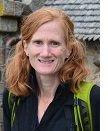 Dr. Mary Dallas Allen
Dr. Mary Dallas Allen
Social Work Faculty Anna Spilker
Anna Spilker
Speech-Language Pathology Faculty Kelly McBrideSpecial Education Faculty
Kelly McBrideSpecial Education Faculty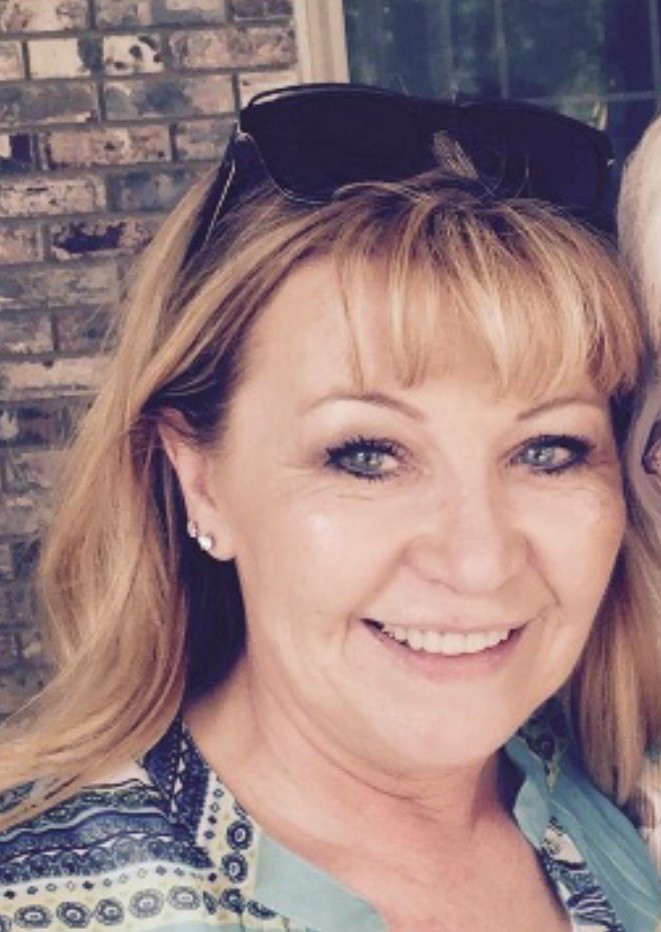 Tracy Charles-SmithFamily Faculty
Tracy Charles-SmithFamily Faculty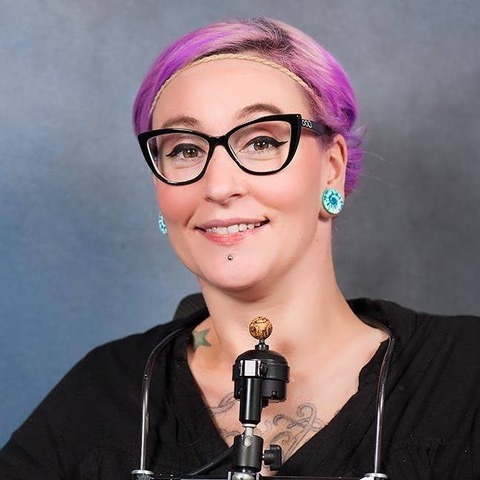 Maggie Winston
Maggie Winston
Self-Advocate Faculty Nathan Rabang
Nathan Rabang
LEND Training Coordinator
- Past LEND Fellows
- 2020-2021 Cohort2020-2021 CohortLong Term Fellows 2020-2021Brita Steinberger, Katie Cronk, Eric Gurley, Hillary Landers, Jennifer Dera, Lixue Mason, Sarah Evans, Abigail Ogilbee, Yonna Pereyra, Jena CraftonMedium Term Fellows 2020-2021Donna Lacour, Patricia West
- 2019-2020 Cohort2019-2020 CohortLong Term Fellows 2019-2020Autumn Smith, Brianna Gibbs, Erin Main, Jaeok Kim, Jessie Doherty, Katherine Adams, Laurie Hodne, Lee Waters, Melissa Anderson, Nicole Zegiestowsky, Samantha Skirko, Tobe GurleyMedium Term Fellows 2019-2020Caitlin Jones, Corey Gilmore, Shoni Evans
- 2018-2019 CohortLong Term Fellow 2018-2019Alison Nielson, Eva Lyons, Marcy Belisle McGraw, Lisa Kness, Tristan Berkey, Juliana Crandall, Travis Cooper, Kim Kovol, Mackenzie, Kylie ClarkAdvanced Medium Term Fellow 2018-2019Ester BennettJoshua Kamerick
- 2017-2018 CohortLong Term Fellows 2017-2018Amanda Kulikov; John Cartwright; Marisha Bourgeois; Angela Gill; K Nunemann; Rebecca Bjorke; Carolyn Michaud; Kelly McBride; Rita Kittoe; Greta Goto; Kim DugasMedium Term Fellows 2018-2018Cora Trowbridge; Rene King; Sydney Krebsbach
- 2016-2017 CohortLong Term Fellows 2016-2017Alicia Mahlow; Jennifer Malecha; Rashayne Zimmer; Anna Maguire; Kristen McKay; Samantha Cowper; Beverly Rivard; Kristin Riall; Stephanie Johnson; Brenda Spofford; Montean Jackson; Valerie SchmitzMedium Term Fellows 2016-2017Chad Niewendorp; Karli Lopez; Maggie Winston
- 2015-2016 CohortLong Term Fellows 2015-2016Ann Waldron; Lyon Johnson; Charlotte Kimber; Cindy Hensley; Becky Parenteau; Robin McNeilley; Erin Kinavey Wennerstrom; Jada Kahl; Tiffany McCormack; Christina Savel; Christina Bieber; Heidi Shinn Aga; Mel Nobles
- 2014-2015 CohortLong Term Fellows 2014-2015Amy Sundheim; Krista James; Sara Burley; Anna Cook; Mary Elam; Stephanie Cornwell-George; Breanna James; Maureen O'Keefe; Tara Maltby; Jennifer Glorioso; PJ Hatfield-Bauer
- 2013-2014 CohortLong Term Fellows 2013-2014Anna Spilker; Jeanine Jeffers-Woolf; Maya Heim; Arlene Patuc; Diana Molina; Megan Bolthouse; Jessica Purser; Lejla Berberovic; Sonya King; Emily Vober Reeves; Lisa Balivet; Susan Nugent
- 2012-2013 CohortLong Term Fellows 2012-2013Carrie Plant; Diane Leithead; Heather Chord; Jayme Ellerbe; Karrianna Gallagher; Lynn Palmer; Loree Rayback; Maureen Harwood; Stephanie Johnson; Ursula Jones
- 2011-2012 CohortLong Term Fellows 2011-2012Betsey Jacobs; Colleen Powers; Gretchen Chamberlain; Hilary Wilson; Karen Gibson; Kathleen Hansen; Laurie Lopez; Lisa Jackson; Marna Schwartz; Maureen McGlone; Melissa Dobbs; Teresa Hurley
- 2020-2021 Cohort










